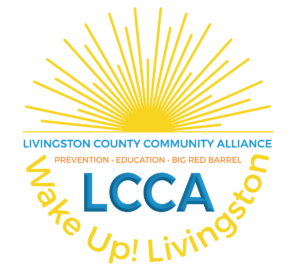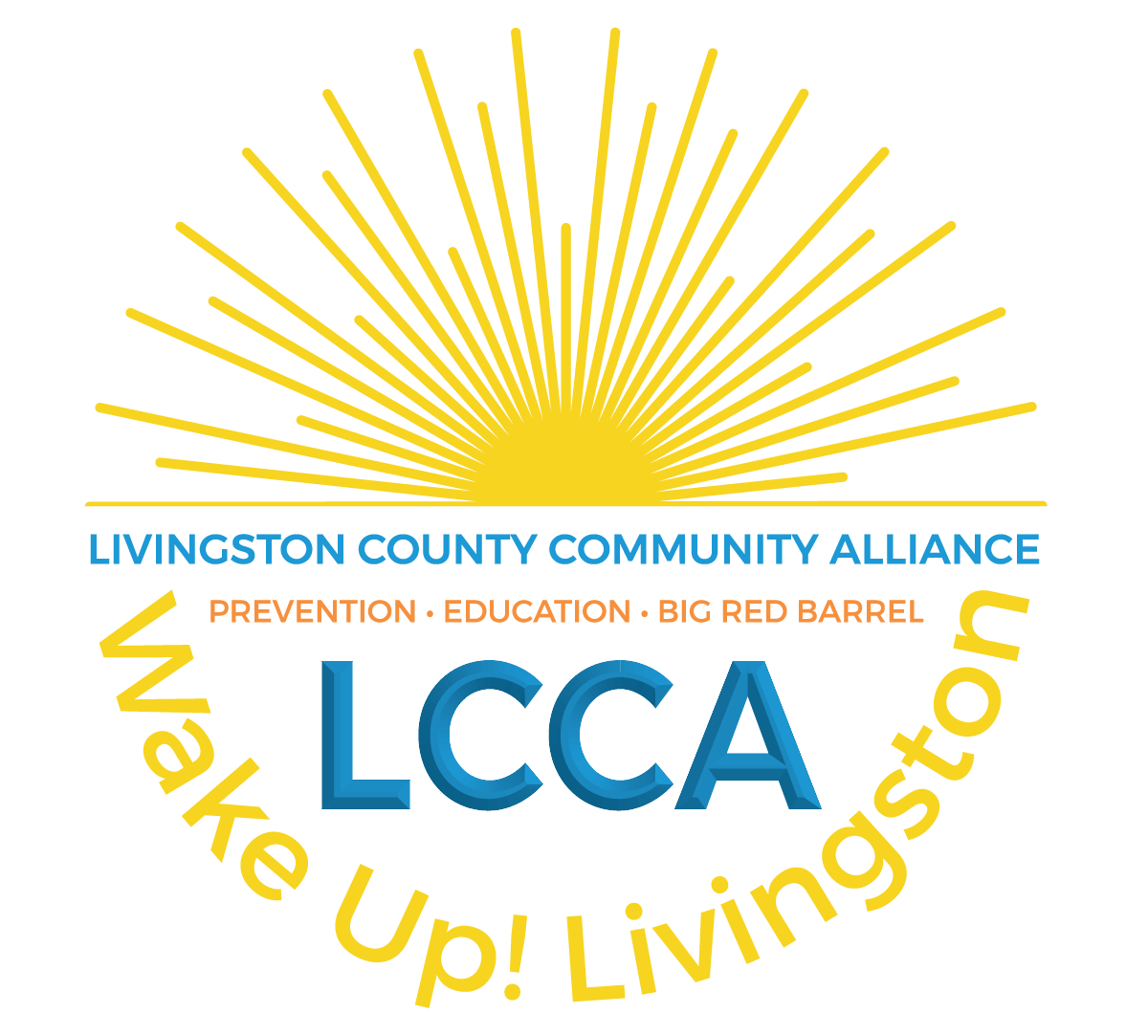About Us
Our Organization

The Livingston County Community Alliance (LCCA) is a county-wide, grassroots, anti-drug coalition which aims to unite the Livingston County community to reduce and prevent youth substance use and to life a healthy and drug free lifestyle. We mobilize community members to become partners in prevention for youth and adult alcohol, marijuana, and prescription drug misuse/abuse.
Our History
The Livingston County Community Alliance (LCCA) began as the Livingston Student Assistance Coordinators (LIVSAC) in October 1986. The group joined forces with school personnel from the five county school systems, health services, and law enforcement, to implement a plan to deal effectively with youth substance use in the county. As a result of bimonthly meetings, a consortium was formed. The group aimed to develop and implement a broad community plan to address substance abuse in Livingston County. Local leaders met to conduct strategic and organizational planning for the consortium. From this, a community-based group was formed and took the current name, “The Livingston County Community Alliance (LCCA).” The kick-off meeting of the LCCA was held on December 6, 1991, and included over 125 participants. In 1992, the LCCA became legally incorporated as a 501(c)3. In 2017, the LCCA was awarded the federal Drug-Free Communities Grant which provides $125,000 per year for community-based drug prevention activities.
Collaboration is Key
The LCCA recognizes the value of collaboration in preventing youth substance use. We partner with 12 key sectors to reduce youth substance use, including: youth, parents, businesses, media, schools, youth serving organizations, law enforcement, civic/volunteer organizations, religious organizations, healthcare professionals, local government, and other organizations that specialize in reducing youth substance use. It is through these partnerships that we can provide and implement effective, widespread drug awareness campaigns and activities.
Coalition Documents
Recipient Rights
Recipients of substance abuse services have rights protected by the state and federal laws and promulgated rules. You may request a brochure outlining these rights. Upon engaging in services, a Know Your Rights brochure will be given to you as part of your orientation. For information or assistance, contact: Suzi Snyder at 517-545-5944 or Recipients Rights Coordinator, Michigan Department of Community Health, Mental Health and Substance Abuse Services, Bureau of Substance Abuse, 320 South Walnut St., 5th Floor, Lansing, MI 48913
Funding
This website was developed under a grant from the Office of National Drug Control Policy (ONDCP) DFC Support Program, the US Department of Health and Human Services (HHS), and the Centers for Disease Control and Prevention (CDC). The views, policies, and opinions expressed are those of the authors and do not necessarily reflect those of the ONDCP, HHS, or CDC.
Funded in part by the Community Mental Health Partnership of Southeast Michigan and the Michigan Department of Community Health, Office of Recovery Oriented Systems of Care, Substance Abuse Prevention and Treatment Section
Join Us For Our Monthly Meetings
Everyone is welcome to join! Our meetings take place the 2nd Tuesday of each month from 6:00-7:30 pm via In-Person at Howell EMS (1911 Tooley Rd, Howell, MI) and Zoom. To learn more contact us via email at livingston.community.alliance@gmail.com.
